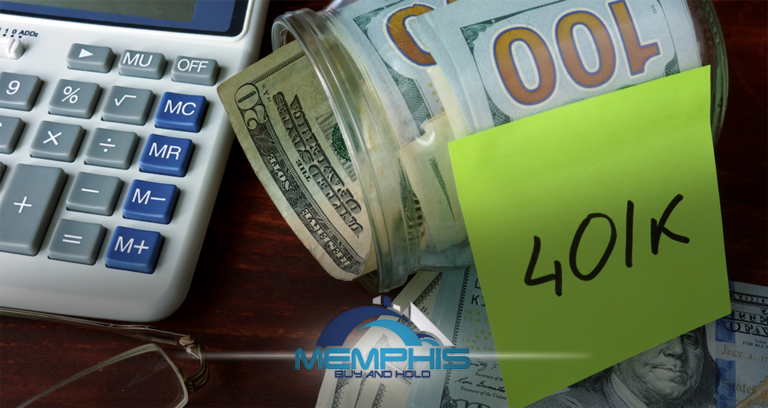
Do you have a 401(k)? Do you wonder if it’s a lucrative investment vehicle? The majority of people may have problems seeing the returns, which means they contribute more money to it. Thus, they’ll contribute the money on a monthly or bi-monthly basis, despite it feeling like a blind investment.
Most people didn’t get the luxury I did when it comes to talks about the 401(k). My parents would openly discuss household finances, which also included the 401(k) investment. At the time, I didn’t really understand the idea, but after earning an accounting degree and working as a CPA, I discovered two trends:
Balances on 401(k) tend to be rather low to what they should have been by a certain age.
People who invest in a 401(k) can’t tell you if the investment option is really good for them, even after years of investing in it.
In 2014, 401(k) balances hit their all-time highs – mostly because of the market returns due the previous years and the bigger employer/employee contributions. By the end of 2014, about 80 percent of eligible workers had a 401(k). This is a lot of folks participating in the investment plan.
According to Fidelity, the average worker will have saved eight times their salary for their retirement. However, another study looking at the average middle-class employee showed that the average balance was $100,000. If a person’s ending salary is $90,000, their 401(k) should be around $750,000. The balance, which uses the four percent rule, should give you around $28,800 a year to live off of.
What’s The Problem?
There are several issues here, but there are two key reasons for the discrepancy:
- High fees
- Failure to rebalance
When it comes to your 401(k), you need to be smart about it. You can’t just invest in it and leave it be. You have to be smart and keep reinvesting the money you make into the market.
High Fees Associated With 401(k)
Your 401(k) tends to come with some high fees. According to the law, your employer will need to do some research to find the lowest possible fee for employees. However, it’s the employer that decides what the fees will be.
These fees may include plan administration or fund management. The plan administration fees tend to be quite low whereas the cost of fund management is much higher. It’s the fund management fees you should be focusing on. While you may be limited in your selection, you can still find funds that don’t charge a lot for fees. You don’t want to pay a lot of fees on a fund that doesn’t offer a good return. Too often, people will pay higher than one percent on their investable asset.
Look at the fund choices of all the plans. Some funds will have big returns but charge an excessive fee. Be aware that history doesn’t always repeat itself and you pay more in fees than you get back in your investment.
Failure To Rebalance
There are millions of people who put money into a 401(k) investment without a second thought. The problem is that they lack any real understanding of what’s happening with that money. They don’t know how it works, they don’t know the rules and they don’t rebalance the portfolio. In 2014, just 15 percent of 401(k) holders did rebalance their portfolio.
Obviously, people are taking the stance of investing and forgetting. This is not a good thing. You have to rebalance your portfolio to adjust to the new trends going on in the market. Many could argue that personal investors don’t make sound decisions –usually emotional – ones that could hinder their ability to earn more.
Here’s a sobering fact: in 30 years’ time, an average investor will only see a 1.9 percent increase.
Does this mean you shouldn’t rebalance your portfolio? You absolutely should rebalance it!
You cannot just start a 401(k) plan and leave it as such. You will not have the kind of returns you want. If you don’t rebalance the portfolio, you could expose yourself to certain types of asset classes. For example, you could be too invested in bonds, which reduces the speed of the portfolio’s growth. You could have too much equity because you’ve not rebalanced the portfolio.
If the market crashes, you could be in serious trouble.
Rebalance the portfolio each year. Look at the market and see what events are anticipated to take shape. Make use of both retirement and asset allocation calculators to figure out what the best asset allocations are. It’s worth the paying $50 to $80 an hour to talk to a financial advisor about your option.
What Should A 401(k) Plan Have To Ensure A Worthwhile Return?
You may be wondering if you should take your 401(k) funds and use them in alternative asset options like real estate. Of, if the post-tax funds should be used for this kind of venture. This is not an easy yes or no answer due to the number of variables to consider.
In the past, I was basing my assumption that the tax brackets won’t change, which is silly of course. Nobody can predict what the political state will be in five or 10 years from now.
Here’s an example of a possible return:
The average 401(k) has a return of six percent, and the geometric mean is 9.84 percent. Here’s a look at the 401(k) contribution and the non-401(k) contribution – assuming you have forgotten about the contribution and invested your post-tax cash into a low-cost index fund.
The example only focuses on money contributed or declined to contribute.
Your starting salary is $60,000, with a five percent yearly raise, a six percent yearly contribution with a 50 percent employer match. At the end of the 30 years, the balance of the 401(k) will have more money than a non-401(k) plan.
After 30 years and retirement, you can start retiring four percent. After another 20 years, you’ll have a balance of more than $1 million. The non-401(k), however, will have a balance that’s closer to $2 million. How is that?
The 401(k) does better until you decide to retire. Why? You’re no longer getting the employer contributions. When this happens, the non-401(k) option will do better. If you withdrawal four percent in either case, you still face the same tax rate until your 401(k) withdrawals move you into the 25 percent tax bracket. With a non-401(k), you will still pay 15 percent.
After 50 years, and based on the above variables, your 401(k) portfolio and non-401(k) portfolio will be roughly the same, especially if you’re only getting 7.73 percent each year.
Of course, now you may be wondering if you need to invest the 401(k). However, that answer will come with another question: will it give you 7.72 percent each year. If it’s not, will you invest the other post-tax money and will it give you 9.84 percent each year?
What Have I Done?
A successful 401(k) plan needs to have an employer match. Many employers only match 25 percent up to a certain percentage. For me, I opted not to participate in the employer’s 401(k). It may make sense later on, but I’d rather earn more and see a better employer match.
 Memphis Buy And Hold is specializing in locating, purchasing, renovating and managing single-family and multi-unit properties and possesses from 2007 up to the present of experience in real estate investing and property management in the Memphis and Nashville markets.
Memphis Buy And Hold is specializing in locating, purchasing, renovating and managing single-family and multi-unit properties and possesses from 2007 up to the present of experience in real estate investing and property management in the Memphis and Nashville markets.


